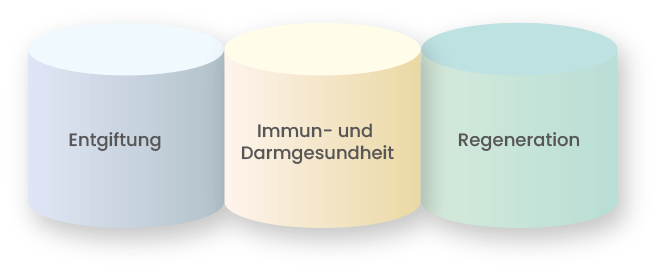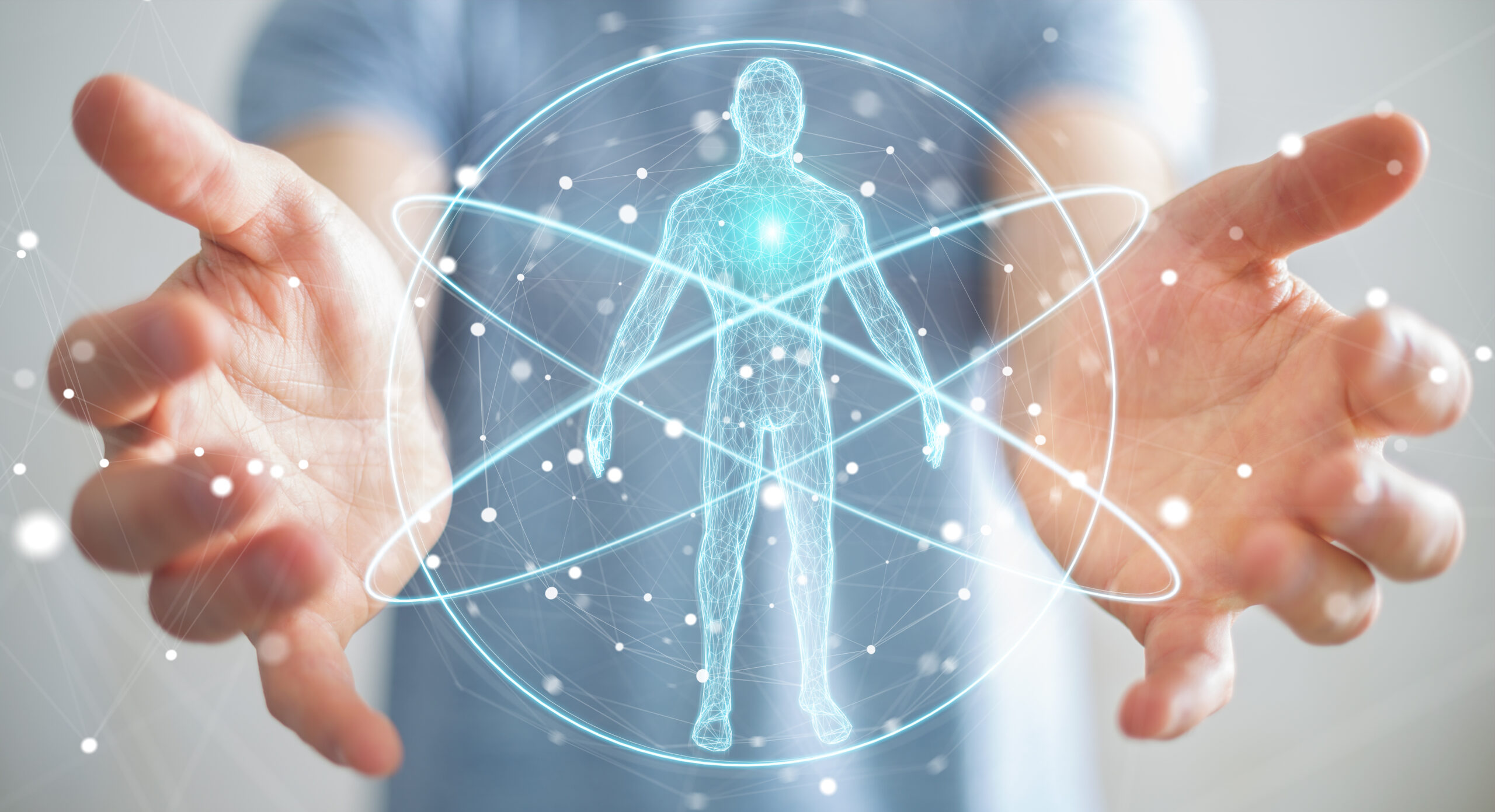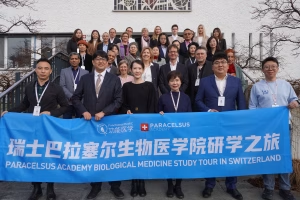Biological medicine views the human being as a synthesis of physical, biological, emotional, mental and social elements. Each of these elements has basic needs, the fulfillment of which forms the basis of our health.
We all have innate abilities, conscious and unconscious, to fulfill these basic needs. These abilities include instincts, feelings and intuitions. The conscious perception, recognition and fulfillment of these needs form a self-regulation system that is crucial for our physical health and well-being (1).
Our interactions with the world are multi-layered and bring us into contact with forces and situations that either promote or burden our well-being, depending on our beliefs, convictions and physical constitution. External influences can put a strain on either our psyche or our body (1).
Psychic-emotional influences
People are social beings and our environment always has an influence on us. Family, educational, professional, social and cultural pressures in particular can lead to unhealthy beliefs and behaviors that seriously impair our self-regulation processes.
In times of chronic illness, it is particularly important to become aware of our beliefs and behavioral patterns and to restructure them if necessary in order to strengthen our self-regulation systems and promote healing processes (2). On the other hand, holistic therapies and measures can release blockages and change our attitudes and perceptions (3).
We experience both here at the Paracelsus Clinic and it is always enriching to witness this process with our patients.
Physical influences
In the complex interplay of our body, numerous self-regulating systems work together harmoniously to maintain health and well-being. However, these finely tuned mechanisms can be disrupted by various external environmental influences.
Toxins, heavy metals and acids are known disruptors of these self-regulatory systems (4). Toxins that we absorb through the environment, food and air can accumulate in the body and put a strain on various organ systems. Heavy metals such as mercury, lead and aluminum can also enter the body, either through environmental pollution or through the use of certain products. These heavy metals can accumulate in the tissue and impair the function of vital organs. In particular, the incidence of environmental neurotoxicity is alarming and results from the inhibition of mitochondrial activity, excessive oxidative stress leading to neuroinflammation, and the promotion of apoptosis and neuronal death (4).
"We are dying an acid death"
The metabolism produces various acids, including ammonium, sulphate, phosphate and organic acids. These acids are deposited in the connective tissue, muscles and joints. The accumulation of acids can lead to inflammation, which in turn can cause pain (5). In addition, acid-forming foods and an unhealthy lifestyle can lead to an acidic extracellular body environment, which further disrupts self-regulation and impairs the balance in the body and negatively affects the functions of the cells and organs. It is therefore important to balance the acid-base balance in the body to ensure optimal health (1).
The German physician and researcher Prof. Dr. med. Gunther Enderlein has observed that microorganisms exist in a cycle (which he calls a “cyclode”) that begins with virus-like particles and extends through bacterial forms to fungal stages. He called these developmental stages protites, chondrites and other names. He saw the smallest particles, the so-called protites, as non-pathogenic symbionts that can grow into pathogenic forms under certain conditions. One of Enderlein’s central statements was that diseases are caused by a disturbance in the balance between these microorganisms and the host. If the environment in the body, especially the pH value, is out of balance, harmless microorganisms can grow into pathogenic forms and cause disease (6).
Proper functions that could be impaired by physical influences:
- Cell membrane functions such as cell membrane potential, membrane proteins and channels
- Immune system, e.g. the immune system fights toxins and damages its own healthy tissue in the process
- Digestive glands such as the liver and pancreas
- Epigenetic changes. Repair processes are neglected
- environment with less oxygen and more acidity. Physiological processes are disrupted
- Enzymes prevented or disrupted
- Hormones prevented or disrupted
This can lead to a variety of health problems, including chronic illness, inflammation and a reduced ability to regenerate.
It is therefore important to take measures to reduce exposure to toxins, heavy metals and acids and to support the body’s self-regulation (1). This includes a thorough and professional detoxification of the body, a targeted nutritional therapy, the promotion of an alkaline environment in the body, the avoidance of harmful environmental toxins, a holistic intestinal reconstruction and an individualized restorative therapy with specific remedies and dietary supplements (4).
By making a conscious effort to reduce these stresses and strains and at the same time building up our body, we can restore and strengthen our body’s self-regulation systems. In this way, we can maintain our health and well-being in the long term.
The Paracelsus Clinic benefits from its many years of experience in restoring the body’s ability to regulate itself. Biological medicine differs from conventional medicine, functional medicine and naturopathic medicine. First of all, the focus is on precise diagnostics. We want to find out what and how much we need to detoxify. And that’s not all: we also test how well the body can detoxify and which excretory organs need to be supported. If toxins are released too quickly from the body’s environment or cells and are not excreted quickly enough, they could cause even more damage to the body. We also have a wide range of detoxification options and treatments that we use specifically and individually for our patients. For chronically ill patients, we also recommend medical supervision during detoxification so as not to worsen symptoms in the initial phase of mobilizing toxins.
What are the different approaches we are looking at?
1. self-regulation therapy with mind-body medicine
In order to re-establish and cultivate the original and healthy balance of the constitutional aspects of our nature, it is important to first become aware of this imbalance. Through structured verbal and non-verbal (breathing, self-awareness and movement) exercises we learn to be more in touch with our complex needs, how to fulfill them and thus restore our feelings of well-being and purpose and as such our physical health.
2. milieu therapy
Milieu therapy is a holistic form of treatment that aims to optimize the body’s internal milieu. It comprises various measures to improve the environment in which the cells live and function. These include:
Detoxification: Toxins are removed from the body through targeted detoxification measures, which reduces the burden on the cells and supports regeneration.
Acid-base balance: The regulation of the acid-base balance is crucial for optimal cell function. In an alkaline environment in the body, cancer cells cannot accumulate, inflammations cannot become chronic, chronic pain cannot develop, parasites cannot survive, etc.
Epigenetics: milieu therapy also takes into account epigenetic factors that can influence gene expression. A healthy environment and lifestyle can promote positive epigenetic changes.
Manual therapies: Various therapies such as lymphatic drainage, colon hydrotherapy and connective tissue massage aim to mobilize toxins, stimulate lymph flow and metabolism and improve oxygen access. This strengthens the regenerative powers and accelerates the body’s regenerative processes.
3. cell membrane improvement
A healthy cell membrane is crucial for the exchange of nutrients and the detoxification of the cell. Normally, the cell membrane has a voltage of around 70mV. In the event of illness, this voltage drops, which leads to reduced function and a lower exchange of nutrients and waste products in and out of the cell. At the Paracelsus Clinic, for example, we use devices such as Papimi and magnetic field therapy to improve cell membrane function. These therapies help to increase cell membrane tension again and thus optimize cell function. Cell membrane function is improved by certain therapies at the Paracelsus Clinic.
4. intestinal structure
Only when the intestine is functioning properly and receives the right food can it digest optimally and perform its additional tasks. This includes optimal nutrient absorption, immune modulation and elimination. The intestine has a very fast-generating intestinal mucosa. The intestinal mucosa cells can regenerate in just 4-7 days (7). With the right diet, pre- and probiotics, remedies and therapies, we have a chance to stimulate regulation in the body relatively quickly by building up the gut (8). This particularly affects the immune system, digestive glands such as the liver and pancreas, the autonomic nervous system and various hormones (serotonin, for example, is produced in the intestinal mucosa).
5. nutrition
A balanced diet, especially through fasting and a plant-based diet, can lead to better regulation by providing more nutrients, relieving the liver, creating an alkaline environment and providing a kind of reboot for the body (9).
In terms of nutrition, milieu therapy focuses on a balanced diet that is rich in vital substances and at the same time reduces the burden on the body. These include:
Fasting: Intermittent fasting or occasional fasting cures relieve the body and give it the opportunity to regenerate (9).
Plant-based diet: A diet rich in vegetables, whole grains, legumes, nuts and seeds provides important nutrients (especially bioactive phytochemicals) and supports the regulation of the body (10).
Relieving the liver: At the Paracelsus Clinic we offer various therapies and programs to relieve the liver, as the liver plays a central role in detoxifying the body. Diet plays an important role here, as avoiding harmful foods such as alcohol, sugar and processed foods, especially animal products, places a heavy burden on the liver.
6. restorative therapies
Various methods of biological medicine additionally strengthen the regenerative powers in order to improve regenerative processes and vitality. We support patients with specialized infusions, remedies and restorative therapies. Natural medicine has a wide range of remedies and nutrients, only a few of which are briefly mentioned here.
Orthomolecular medicine: This therapy focuses on providing the body with the optimal amounts of vitamins, minerals, amino acids and other essential nutrients to optimize cell function and improve regulation. At Paracelsus Clinic we also use special infusions, as patients often benefit from a direct route, especially if the absorption of nutrients and supplements through the gut is impaired, for example in cases of leaky gut syndrome.
Phytotherapy: The use of plant extracts and herbs to support the regulation of the body can be an effective complement to other therapies. Many plants have anti-inflammatory, antioxidant, immunomodulating and even anti-genotoxic properties that can specifically influence the regulatory and regenerative potential.
Homeopathy/isopathy: Homeopathic and isopathic remedies are used to stimulate the body’s self-healing powers and improve regulation. By using different substances in individual potencies, physical and psychological processes in the body and mind can be stimulated to regulate themselves and restore balance.
Cell therapy: Ribonucleic acids (RNAs) are crucial factors for regeneration, which are necessary to maintain healthy tissue and prevent diseases. The thesis on the involvement of RNA in regeneration states that the body no longer has sufficient biologically active RNA after the age of 40. Therapeutically, RNA from specific organs as well as from plants and yeast is used to promote the production of peptides, which benefits the organs (11,12).
Over the years, the Paracelsus Clinic has gained a great deal of experience with organ cell extracts to support regeneration. Organ cell extracts are biologically active substances that can have an epigenetic influence, as in RNA regeneration therapy. The peptides contained in the extracts can influence the cellular environment to create a more favorable epigenetic landscape for cell regeneration and repair. In our experience, organ cell extracts and other RNA regeneration therapies are most effective when the internal environment of the cell is treated at the same time. The body environment therefore always plays a decisive role in any therapy, especially for regeneration therapies.

Regeneration as the 3rd pillar of Paracelsus Biological Medicine
The promotion of regulation is a central component of Paracelsus Biological Medicine. Biological systems have some common characteristics, including self-organization, internal stability, robustness and resilience. This is precisely where bioregulatory medicine comes in, by supporting and promoting these natural properties.
Milieu therapy and the above-mentioned therapeutic approaches are important building blocks to support the natural healing processes. By consciously paying attention to these self-regulation processes, we can make an important contribution to the health of our patients and achieve the regeneration of chronic diseases.
References:
1 Fioranelli M, et al. Clinical Applications of System Regulation Medicine. Open Access Maced J Med Sci. 2019 Sep 14;7(18):3053-3060.
2 Greeson JM, Chin GR. Mindfulness and physical disease: a concise review. Curr Opin Psychol. 2019 Aug;28:204-210.
3 Zion SR, Schapira L, Crum AJ. Targeting Mindsets, Not Just Tumors. Trends Cancer. 2019 Oct;5(10):573-576.
4 Aggarwal V, Mehndiratta MM, Wasay M, Garg D. Environmental Toxins and Brain: Life on Earth is in Danger. Ann Indian Acad Neurol. 2022 Sep;25(Suppl 1):S15-S21.
5. Jones MG, et al. Urinary and plasma organic acids and amino acids in chronic fatigue syndrome. Clin Chim Acta. 2005 Nov;361(1-2):150-8.
6. https://www.semmelweis.de/images/downloads/SANUM-Post/20/enderlein.pdf
7 Liu Y, Chen YG. Intestinal epithelial plasticity and regeneration via cell dedifferentiation. Cell rain. 2020 Sep 1;9(1):14.
8 Barbara G, et al. Inflammatory and Microbiota-Related Regulation of the Intestinal Epithelial Barrier. Front Nutr. 2021 Sep 13;8:718356.
9 Rangan P, et al. Fasting-Mimicking Diet Modulates Microbiota and Promotes Intestinal Regeneration to Reduce Inflammatory Bowel Disease Pathology. Cell Rep. 2019 Mar 5;26(10):2704-2719.e6.
10 López-Romero D, et al. E. Evidence of Some Natural Products with Antigenotoxic Effects. Part 2: Plants, Vegetables, and Natural Resin. Nutrients. 2018 Dec 10;10(12):1954.
11 Pischinger, Alfred. The extracellular matrix and ground regulation: Basis for a holistic biological medicine. North Atlantic Books, 2007.
12 Yang, Min, et al. “The roles of non-coding RNA in the development and regeneration of hair follicles: current status and further perspectives.” Frontiers in Cell and Developmental Biology 9 (2021): 720879.




